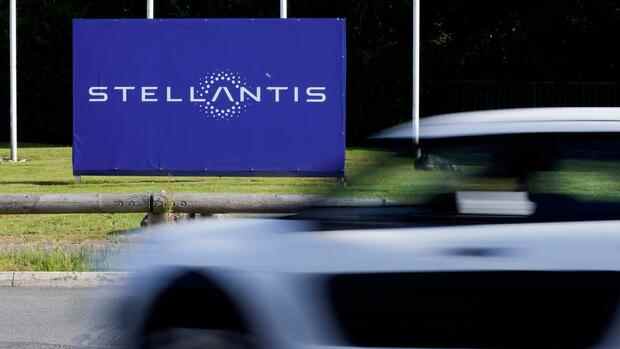Paris, Munich It is a successful premiere for Stellantis: The new car giant, which emerged in January 2021 from the merger of Opel parent company Peugeot-Citroën (PSA) and Fiat Chrysler (FCA), showed a profit of 13.4 in its first annual balance sheet on Wednesday billion euros. Sales were therefore 152 billion euros – an increase of 14 percent compared to the combined figures of PSA and FCA from the full year 2020.
“Today’s numbers demonstrate that Stellantis is well positioned to deliver strong results even in the most challenging market environments,” said CEO Carlos Tavares. The group was therefore able to increase sales and profits, although a good 1.6 million fewer vehicles were built than planned due to the lack of chips. In some plants, Stellantis had temporarily stopped production due to the delivery problems with semiconductors, including at Opel in Eisenach.
According to the information, synergies of 3.2 billion euros were achieved by merging the businesses of PSA and FCA. The group, based in the Netherlands, owns 14 brands, including Citroën, Dodge, Alfa Romeo and Jeep. Tavares wants to answer questions about the first annual balance sheet at a press conference on Wednesday afternoon. Stellantis plans to present a long-term strategic plan on March 1st.
Stellantis is very profitable for a large car company: According to the company, the adjusted return on sales was 11.8 percent last year. The VW Group had recently only achieved an operating margin of 7.6 percent.
Top jobs of the day
Find the best jobs now and
be notified by email.
Business in North America went particularly well. Here, Stellantis mainly sells the high-margin SUVs and pick-ups from the Jeep, Dodge and RAM brands, generating a return of 16.3 percent.
Share significantly up
Investors grabbed after the figures were published, and Stellantis shares rose almost five percent. EUR 3.3 billion is to be paid out to shareholders, which corresponds to a dividend of EUR 1.05 per share. The approximately 300,000 employees worldwide also benefit. Stellantis is distributing a total of 1.9 billion euros to them, 70 percent more than the cumulative payments of the predecessor companies.
Despite the price jump, Stellantis is one of the lowest valued car manufacturers in the world with a market capitalization of 51 billion euros, according to UBS analyst Patrick Hummel. However, the capital market expert sees the potential for a substantial “re-rating” in the group when the long-term strategy is presented next week.
Opel was also able to make a contribution to Stellantis’ good result last year. The group does not publish sales, earnings or detailed sales figures for the German subsidiary. But one thing is clear: the people from Rüsselsheim have been in the black again since 2018.
In 2020, the operating profit was 520 million euros. Last year, the result should also have been three-digit plus. In any case, Stellantis reports an adjusted return on sales of 9.4 percent in the second half of 2021 for its European business, which also includes brands such as Peugeot and Fiat. Previously it was 8.5 percent.
>> Read about this: This is how the new Opel Astra drives
While major competitors such as Volkswagen had to accept a slump in sales last year, Opel was able to keep its sales in the core market of Europe stable at 487,000 units. The Corsa in particular proved to be a bestseller. The small car was the best-selling car in its segment in Germany and Great Britain last year.
Nevertheless, historically speaking, sales at the Rüsselsheim company are bobbing at a very low level. The Hessians are still a long way from the goal of selling a million cars again soon. The details behind the announcement from last summer that Opel should return to the Chinese market in the future are also unclear.
Resistance to Tavares plans
After fierce protests from politicians and unions, Tavares had to withdraw his plans last year to legally spin off the plants in Rüsselsheim and Eisenach from Opel. In an interview with the Handelsblatt and three other European newspapers in mid-January, the Stellantis boss criticized the resistance to his conversion plans at the German subsidiary Opel.
“Unfortunately, our approach has been distorted for political purposes,” Tavares said. “Our goal is to make our German locations more autonomous.” He is concerned that “those responsible on site can find solutions to improve competitiveness and secure jobs”.
Tavares recalled that Opel had lost billions before selling General Motors to PSA around five years ago. “A lot of what we’ve done at Opel since 2017 has been criticized,” said the Portuguese. “But what doesn’t bother anyone is that Opel is now making money.”
More: Ex-Opel boss Lohscheller is hired by US truck manufacturer Nikola
